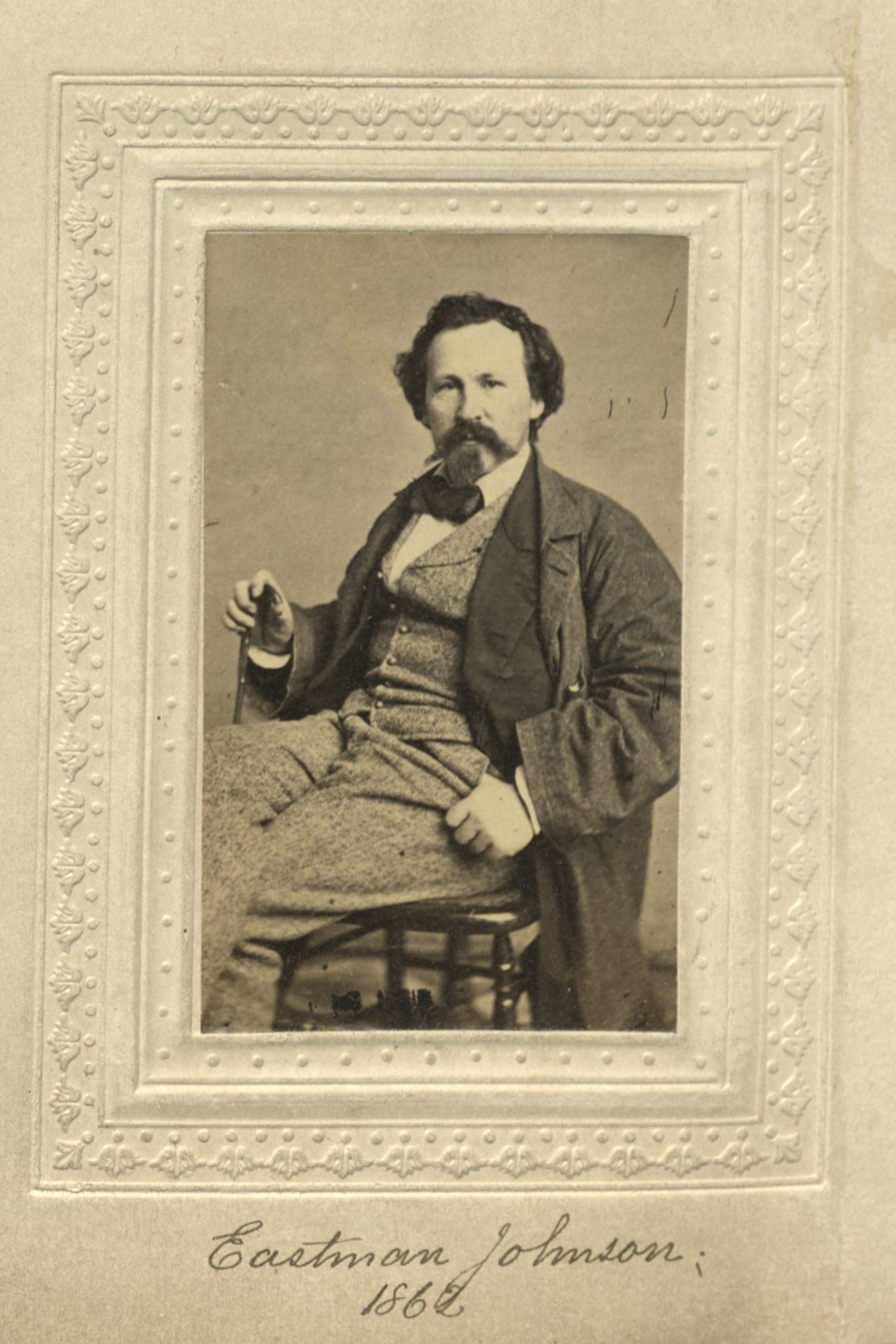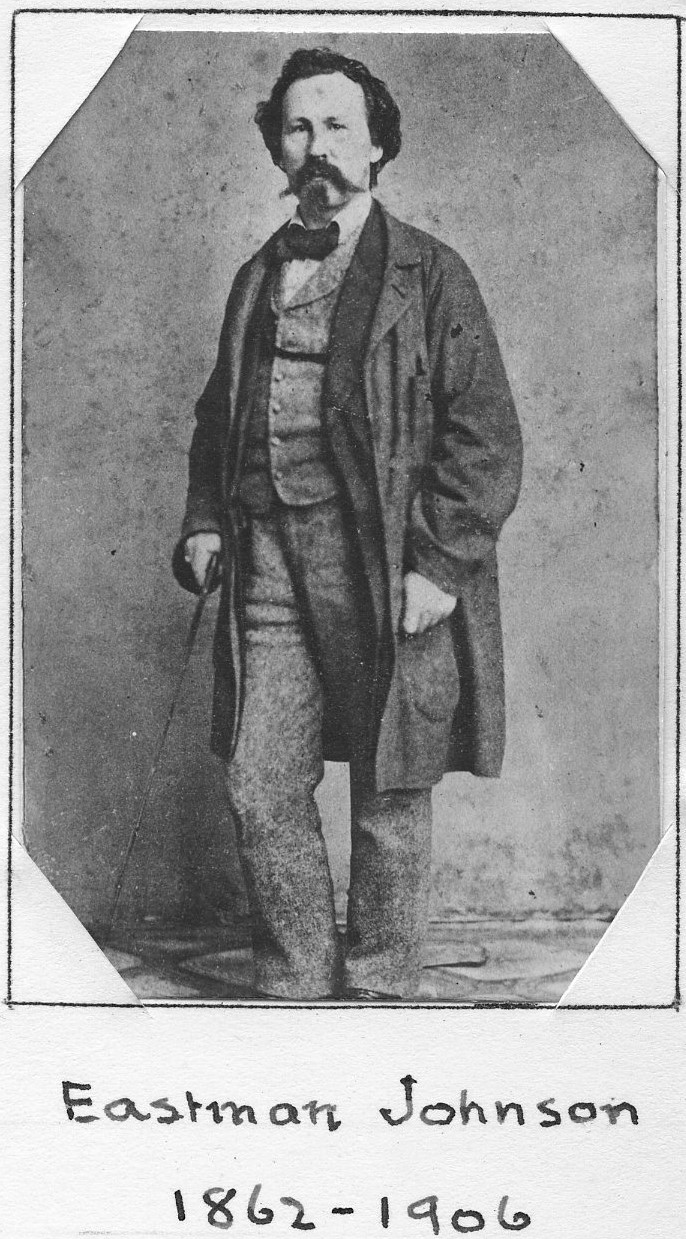Artist
Centurion, 1862–1906
Born 29 July 1824 in Lovell, Maine
Died 5 May 1906 in New York (Manhattan), New York
Buried Green-Wood Cemetery , Brooklyn, New York
, Brooklyn, New York
Proposed by William Stanley Haseltine and Thomas Hicks
Elected 6 December 1862 at age thirty-eight
Proposer of:
Seconder of:
- Thomas B. Clarke
- Harris C. Fahnestock
- Winslow Homer
- Edward L. Keyes
- Louis B. McCagg
- William Packer Prentice
- James D. Smillie
- Charles Y. Turner
- Elihu Vedder
- Olin L. Warner
- John F. Weir
- Alfred Wilkinson
- Thomas W. Wood
Supporter of:
Century Memorial
Eastman Johnson was a Centurion de la bonne et vieille roche. Elected in 1862, a few years after his return from a considerable and fruitful period of study and work in Europe, he retained to the last a lively interest in the life of the Club and was the very embodiment of its spirit of independent good fellowship. His career as an artist was a long and honorable one, imposed from boyhood by native predilection and pursued with manly and constant fidelity to clear ideals candidly formed and patiently applied. Before he went to Europe in 1849 he had made portraits of many of the distinguished men of the time—Webster, John Quincy Adams, Sumner, Longfellow, Emerson, Hawthorne. He was seven years abroad, studying and working at Düsseldorf, Paris, and The Hague, in which last named city he was so successful that the post of Court Painter was offered to him. It had little temptation for one whose rugged nature breathed easier in the atmosphere of his own land. On his return in 1856 he wandered far afield in the pursuit of his art, spending some time in the wilds of the Lake Superior region. In 1858 he settled in New York, became an Academician in 1860, and until his death was always represented in the annual exhibitions. His genre paintings were among the most popular of their kind, but to the non-professional lover of painting he was, even in these, essentially a portraitist. His work, in whatever sort, bore the marks of his vigorous, independent, and faithful character. His portraits, if collected, would form a gallery of the most noted and characteristic men of the nation and the period, and no historian would be misled by them. To his fellows of The Century he was a companion at once cherished and honored. His sterling integrity of intellect, his quaint and rich humor, his incisive wit, always at the service of a singularly original and uncompromising judgment, made him a delight and inspiration in Century intercourse.
Edward Cary
1907 Century Association Yearbook


